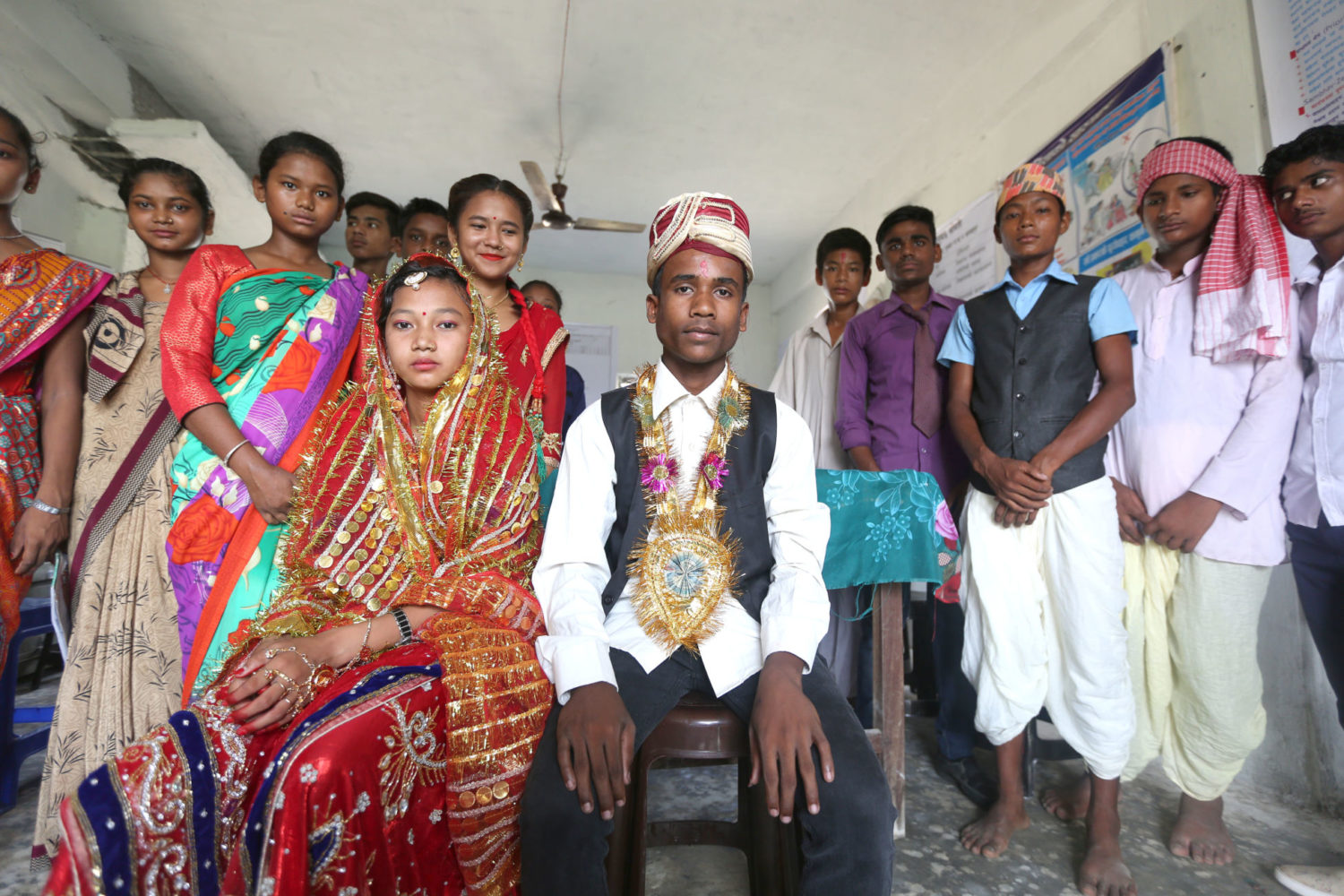Spokespeople available
Multimedia content can be downloaded here.
7 June 2019 – An estimated 115 million boys and men around the world were married as children, UNICEF said today in its first ever in-depth analysis of child grooms. Of these, 1 in 5 children, or 23 million, were married before the age of 15.
Using data from 82 countries, the study reveals that child marriage among boys is prevalent across a range of countries around the world, spanning sub-Saharan Africa, Latin America and the Caribbean, South Asia, and East Asia and the Pacific.
“Marriage steals childhood,” said UNICEF Executive Director Henrietta Fore. “Child grooms are forced to take on adult responsibilities for which they may not be ready. Early marriage brings early fatherhood, and with it added pressure to provide for a family, cutting short education and job opportunities.”
According to the data, the Central African Republic has the highest prevalence of child marriage among males (28 per cent), followed by Nicaragua (19 per cent) and Madagascar (13 per cent).
The new estimates bring the total number of child brides and child grooms to 765 million. Girls remain disproportionately affected, with 1 in 5 young women aged 20 to 24 years old married before their 18th birthday, compared to 1 in 30 young men.
While the prevalence, causes and impact of child marriage among girls have been extensively studied, little research exists on child marriage among boys. However, children most at risk of child marriage come from the poorest households, live in rural areas, and have little to no education.
“As we mark the 30th anniversary of the adoption of the Convention on the Rights of the Child, we need to remember that marrying boys and girls off while they are still children runs counter to the rights enshrined in the Convention,” said Fore. “Through further research, investment and empowerment, we can end this violation.”
###
Notes to editors
Multimedia content can be downloaded here.
Estimates of the global and regional prevalence of child grooms are calculated on the basis of national estimates in the UNICEF global databases, comprised of nationally representative data from 82 countries. National data on child marriage are primarily drawn from household surveys, including the UNICEF-supported Multiple Indicator Cluster Surveys (MICS) and the USAID-supported Demographic and Health Surveys (DHS). Demographic data are drawn from the United Nations Department of Economic and Social Affairs, Population Division.
For more information, please contact:
Emily Craigie, 0207 375 6058, [email protected]
Unicef UK Media Team, 0207 375 6030, [email protected]
About Unicef
Unicef is the world’s leading organisation for children, promoting the rights and wellbeing of every child, in everything we do. Together with our partners, we work in 190 countries and territories to translate that commitment into practical action, focusing special effort on reaching the most vulnerable and excluded children, to the benefit of all children, everywhere.
Unicef UK raises funds to protect children in danger, transform their lives and build a safer world for tomorrow’s children. As a registered charity we raise funds through donations from individuals, organisations and companies and we lobby and campaign to keep children safe. Unicef UK also runs programmes in schools, hospitals and with local authorities in the UK.
For more information please visit unicef.org.uk


